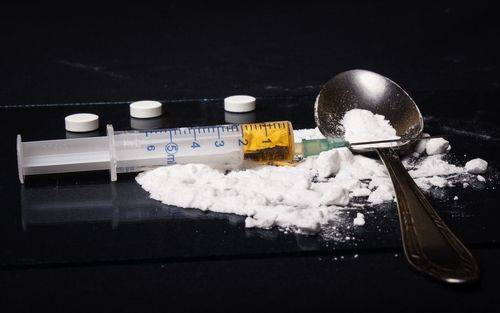Robert Downey Jr.'s Son's Cocaine Arrest Highlights The Huge Role Genetics Play In Addiction

In the wake of Robert Downey Jr.’s 20-year-old son’s arrest on Sunday for suspicion of cocaine and smoking paraphernalia, the question of whether drug use is a personal choice or if genetics play a role has been raised.
“Unfortunately there’s a genetic component to addiction and Indio has likely inherited it,” read a statement released by Robert Downey Jr.’s representatives. The elder Downey battled with drug and alcohol addiction, using drugs like cocaine and heroin. His addiction lasted through the 1980s and 90s before finally getting clean in 2003. Downey Jr. was introduced to drugs at a young age. At just 6 years old, Downey Jr.’s father allowed him to try marijuana, which Downey Sr. has said he deeply regrets.
But does Downey’s family history of alcoholism and addiction have a connection to his personal drug problems? Is it possible for genetics to play a role?
According to the National Council on Alcoholism and Drug Dependence, “The single most reliable indicator of risk for future alcohol and drug problems is FAMILY HISTORY. Research has shown conclusively that family history of alcoholism or drug addiction is in part genetic and not just the result of the family environment ... Plain and simple, alcoholism and drug dependence run in families.”
Family history means either one or both parents has had an alcohol or drug problem. While choosing to use a drug is a personal choice influenced by environment (peers, family, availability), once a person begins to use the alcohol or drugs, “the risk of developing alcoholism or drug dependence is largely influenced by genetics.”
In a study published Tuesday in Biological Psychiatry, titled “The Biology of Addiction Risk Looks Like Addiction,” researchers found people who are at an increased risk for developing addiction share many of the same neurobiological signatures of people who have already developed addiction. The study was done by looking at the brain’s dopamine receptors in three groups of young adults. People with fewer D2 receptors are more likely to become addicted than those with many receptors—and how many receptors a person’s brain contains has a lot to do with genetics. What this means is that people who have an increased risk have similar brain mechanisms that promote the use of addictive substances as those people who have long-standing habitual substance use.
To learn more about the science of addiction, check out The University of Utah Health Science page about genetics and the brain.



























